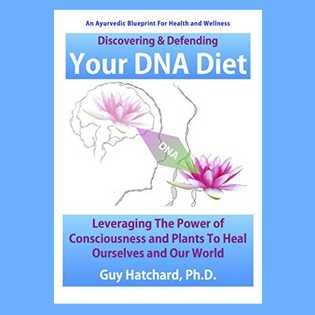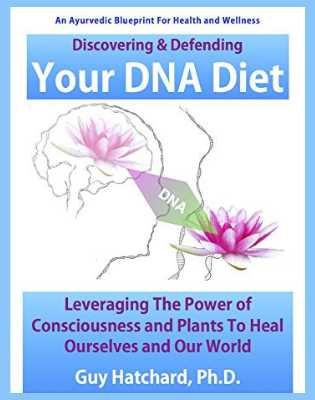With the announcement of an impending policy deal between the coalition partners, it is a time to reflect on where we are as a nation at home and on the world stage.
This article is also available as a PDF document that you can print, download, and share. An audio version is available here.
A revealing article by Susan Edmonds in Stuff just about sums it up with the headline “My failed quest to find something that’s cheaper in NZ“. Edmonds interviewed a succession of ‘experts’ who paraded a list of excuses why everything, including things we make efficiently here in abundance from electricity to dairy products, are cheaper elsewhere in the world, highlighting the failures of successive governments to deliver economic benefits to the people who work hard to create them. Time to take stock. There is a lot to do.
New Zealand willingly participates in a globalised world of supposedly ‘free’ trade, which is manifestly not a level playing field. In fact, the cards are stacked against us not only because we are a small player with few aces up our sleeve, but also because we have, over time, acquiesced to circumstances which leave others in control.
Unsurprisingly, it is not always foreign governments who are calling the shots. Unlike nations, globalisation does not actually have a police force or even a set of rules. The unregulated global space is the wild west of the modern world. International corporations and organisations, often in the hands of very few individuals or secretive funders, are often able to function freely simply because they can—in other words there is nothing to stop them. In some cases, especially in the field of health, foreign power bases like WHO, CDC, FDA, GAVI and ICMRA appear to be writing our New Zealand legislation for us.
The resulting economic disadvantage is one thing, but medical risk is quite another issue altogether. Therefore, it was gratifying to find out that the Moderna trial of a new mRNA vaccine for the Epstein Barr virus was halted on November 16th due to a suspected case of myocarditis among the 150 12-17 year old trial participants. The Epstein Barr virus leads to mononucleosis, often referred to as the ‘kissing disease’, which causes fever and sore throat but is not considered a serious illness, whereas as we have come to know myocarditis is serious.
You might think that this is evidence of a system which will protect us from the risks of medical biotechnology interventions and experimentation, such as occurred in both China and America in the lead up to the Covid pandemic. You would be wrong. Biotechnology experimentation has become rampant and remains unregulated. Medical experimentation and exploitation are designed to reap vast profits for some.
Nearly a year ago, a secret, illegal bio lab was discovered when a code inspector came upon a suspicious warehouse in Reedley, California. Inside, she found many Chinese workers “wearing white lab coats, glasses, masks, and latex gloves,” along with “thousands of vials of biological substances” and 1,000 mice.
At first, the US Center for Disease Control (CDC) refused to investigate, and even hung-up on local officials who asked for help. After the local Congressman got involved, the CDC did an inspection and found “at least 20 potentially infectious agents, including HIV, Tuberculosis, and the deadliest known form of Malaria.”
It was later learned the mice were “transgenic, genetically engineered to catch and carry the COVID-19 virus.” A further inspection found “blood, tissue and other bodily fluid samples and serums” along with thousands of vials of “suspected biological material.” Some of the vials were labeled with the names of infectious agents, while others were labeled in a “code” that was never deciphered. Local officials discovered a refrigerator in the lab labeled “Ebola.”
These facts were revealed when a US House Select Committee released a highly disturbing report on the lab last week. According to the report, the CDC had not bothered to test any samples, even those with unknown contents, making it “impossible for the Select Committee to fully assess the potential risks that this specific facility posed to the community.” The Select Committee report calls the lack of CDC investigation “baffling.”
The lab was run by an international fugitive from China named Jiabei ‘Jesse’ Zhu. After running various state-connected companies in China, he moved to Canada, where he set up dozens of corporations to “steal valuable American intellectual property and unlawfully transfer” it to China.
The Supreme Court of British Columbia found he committed “fraud on an epic scale,” resulting in a $330 million judgment. He then fled to America, assuming the alias David He, where he set up several more companies, including the one behind the bio lab.
While the supposed purpose of the California lab was to sell test kits, in fact all the company did that could be considered commercial business was buy counterfeit kits from China and re-sell them in the United States. Thus in the words of the report, there was a “lack of apparent legitimate (or even profit-motivated criminal) motive in the operation of the illegal facility.”
This raises the question as to the true purpose of the lab – especially given that Jesse Zhuhe, its criminal operator, was “receiving unexplained payments via wire transfer” from Chinese banks. The report further notes that:
“no one knows whether there are other unknown bio labs because there is no monitoring system in place.”
We can now return to little New Zealand where the National Party and ACT, newly elected to government, are planning to deregulate biotechnology—the policy ‘brainchild’ of rejected National leader Judith Collins. Something that makes no sense at all and speaks of policy madness, given the known outcomes of the Covid pandemic and those that are still in need of investigation, such as our record levels of excess deaths. This policy is completely at odds with what is scientifically known about the safety and effectiveness of GE interventions in agriculture and medicine—they don’t work and they pose serious risks.
It does however begin to make a sort of twisted sense when you realise that the US may make biotechnology deregulation the price of a free trade agreement. In other words, National and ACT appear prepared to hand over New Zealand to America on biotechnology and open up our already beleaguered economy to further exploitation (and crucially our personal genetics) to manipulation by commercial forces operating at the outer limits of the law. If we deregulate biotechnology as National wants, there will be nothing to stop them.
In summary, National and ACT MPs appear to know very little about biotechnology, but they want to give it a go for unexplained reasons.
Just how this might work is revealed by an agreement between consumer DNA tester 23andMe and the pharmaceutical giant GlaxoSmithKline (GSK), who are paying 23andMe $20 million to extend its five-year contract to mine the company’s consumer DNA data for another year. GSK is searching for hints about genes that could be connected to disease. 23andMe will get royalties on any drugs developed.
The move is another step in 23andMe’s plan to transform itself into a full-fledged health care company that also treats patients. 23andMe acquired a tele-health and drug-delivery startup called Lemonaid Health in 2021. Lemonaid doctors are being trained by 23andMe on how to interpret DNA results and provide tailored health advice.
23andMe’s concept of “health care” is all about expanding the use of drugs by getting people on them earlier, before they even have symptoms, based solely on genetic risk factors.
It might sound promising until you recall that medical misadventure and misprescribed pharmaceutical drugs are already the third leading cause of death. In other words, most pharmaceutical drugs cause illness rather than prevent it, they tend to mask symptoms, and what is the point of taking them if you don’t actually have any symptoms?
There is also a deeper reason to reject the approach that GSK and 23and Me are employing. Genetic differences are not the sole or even the main determinant of susceptibility to disease. The most highly verified approaches to prevent illnesses before they arise involve improved diet, exercise, hygiene, lifestyle and meditation, a far cry from deregulated biotechnology. According to research, these reduce your all-cause death risk by around 80%.
The main take-home lesson of the pandemic has been that endeavouring to edit human genetic or epigenetic processes is inherently dangerous, as the trial data from the latest Moderna vaccine confirms.
So would you trust the new government on this issue, or do you suspect, like me, that they have no deep understanding about what they are proposing? Would you rather embed the New Zealand Bill of Rights as a constitutional principle, repeal the Therapeutic Products Bill and strengthen biotechnology regulation; which would leave medical choice with the individual where it belongs and prevent exploitation by predatory global biotechnology companies? It won’t happen unless we continue to speak up and lobby our MPs. Nor will it happen unless we improve our lifestyle habits, for example by including more fresh produce in our diet. The market has to respond to consumer demand, slowly but surely it will. It is not solely about waking up the government, it is also about waking up ourselves and our people so that we are not railroaded into a medical dystopia.






